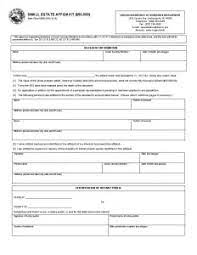Property damage and physical harm are the two main things that business general liability insurance is known to cover. That’s a straightforward explanation, but it’s not the whole tale. This coverage has a part called “personal and advertising injury liability” that addresses various business-related issues, such as insurance against defamation. In this post, we’ll go into further detail on that clause and the culpability of defamation.
What is Defamation?
Defamation is defined by the Legal Information Institute as any speech that harms the reputation of a third party. Slander and libel fall under the category of defamation torts.
The statement must contain four components to establish defamation:
- The false assertion has to be presented as fact.
- You have to tell someone else about that untruth.
- In any case, you have to be negligent.
- The subject of your comment must have suffered as a result of your statement.
The Defamation Act 2013 mandated that reputational harm must be “serious” as of January 2014. Additionally, if the claimant is a business, it must demonstrate “serious financial loss.”. This has led to some ambiguity over the courts’ application of these additional standards. Other defenses may be employed, including the veracity of the statement or the author’s unique obligation to make it.
What Are Slander and Libel?
Two types of defamation are libel and slander. The primary distinction between the two is that libel includes all published remarks, whereas slander only addresses words that are published in a fleeting or transient form—typically, statements that have been made.
The slander victim must demonstrate that they have suffered financial loss as a result of the slander. But, if the victim of libel is not a business, there is no need to demonstrate a loss. Libel victims can sue offenders even if a written insult doesn’t lead to financial loss.
Though the distinction appears straightforward, there are ambiguities and difficulties in defining the two, primarily related to the quick development of social networking and modern technology. According to the perspective used by UK courts, certain online messages are more similar to speech than traditional print, and as such, slander may occasionally apply to such communications.
Is Defamation Covered by Insurance?
Defamation is covered by insurance, but the specifics of your policy will depend on your type of business. The following are the four typical ways that a business insurance policy will cover defamation:
General Liability
As mentioned above, the most typical method by which businesses are protected against defamation lawsuits is through the “Personal & Advertising Injury” portion of their commercial general liability insurance policy.
Directors And Officers Insurance
Libel and slander are covered under the general term “personal injury” in certain directors’ and officers’ insurance policies.
This policy does not have standardized defamation coverage, unlike commercial general liability coverage. You must be aware of your specific policy; if you have personal injury coverage, confirm if other people are covered by the insurance in addition to your board of directors.
Cyber Liability
Media liability sections of many contemporary cyber insurance policies include defamation coverage. These insurances frequently cover the gaps in the commercial general liability policy’s defamation coverage.
Examples of Commercial Insurance Policies’ Defamation Coverage
Firms, regardless of size, can face libel or slander lawsuits if they make false statements about a third party. There are several examples of slander and libel in commercial settings, including:
- When a fitness instructor calls out another trainer for being unqualified for their position, the trainer will likely lose business.
- A management consultant informs someone that a company has been involved in immoral or unlawful behavior.
- A freelance site designer unjustly accuses a competitor of producing subpar work in an email to a prospective client, costing the competitor a contract.
- When an event planner learns that a frequently used venue is going bankrupt, they notify the staff not to make any reservations there. As a result, the venue loses both present and future reservations.
- A salesperson uses disparaging remarks about a rival business to advertise the services of his organization.
Whatever the nature of your company’s operations, a defamation lawsuit might bankrupt it with court fees and penalties. Professional indemnity insurance can pay compensation to the claimant and cover the legal costs of defending your company against a defamation lawsuit.
Defamation in Insurance: FAQs
What Does Defamation Imply?
In legal terms, defamation is the act of making false claims about someone to a third party with the intent to harm that person’s reputation.
What Does Insurance Slander Mean?
Libel and slander claims brought against the insured are covered by standard commercial general liability insurance plans. Libel and slander are different in that libel refers to written defamatory statements, whereas slander refers to spoken defamatory statements.
What Is Libel’s Liability?
Defamation and libel are synonymous; libel refers to remarks made against an individual without cause, subjecting them to disdain from the public. On the other hand, the term “liable” implies someone who is held legally accountable for anything, such as an unpaid debt.
What Differentiates Slander from Defamation?
When someone tells a third party something incorrect about you and you get hurt, that is called defamation. Defamation encompasses both libel and slander. The act of defaming someone else by writing in periodicals, blogs, newspapers, articles, or social media posts is known as libel.
Defamation in Insurance: Summary
Remember that no matter what, defamation insurance won’t pay for every claim. You cannot purposefully slander someone and expect insurance to cover it since intentional or malevolent activities are excluded from all defamation insurance policies. Insurance is used to protect against inadvertent mishaps and circumstances that occur during business operations.



